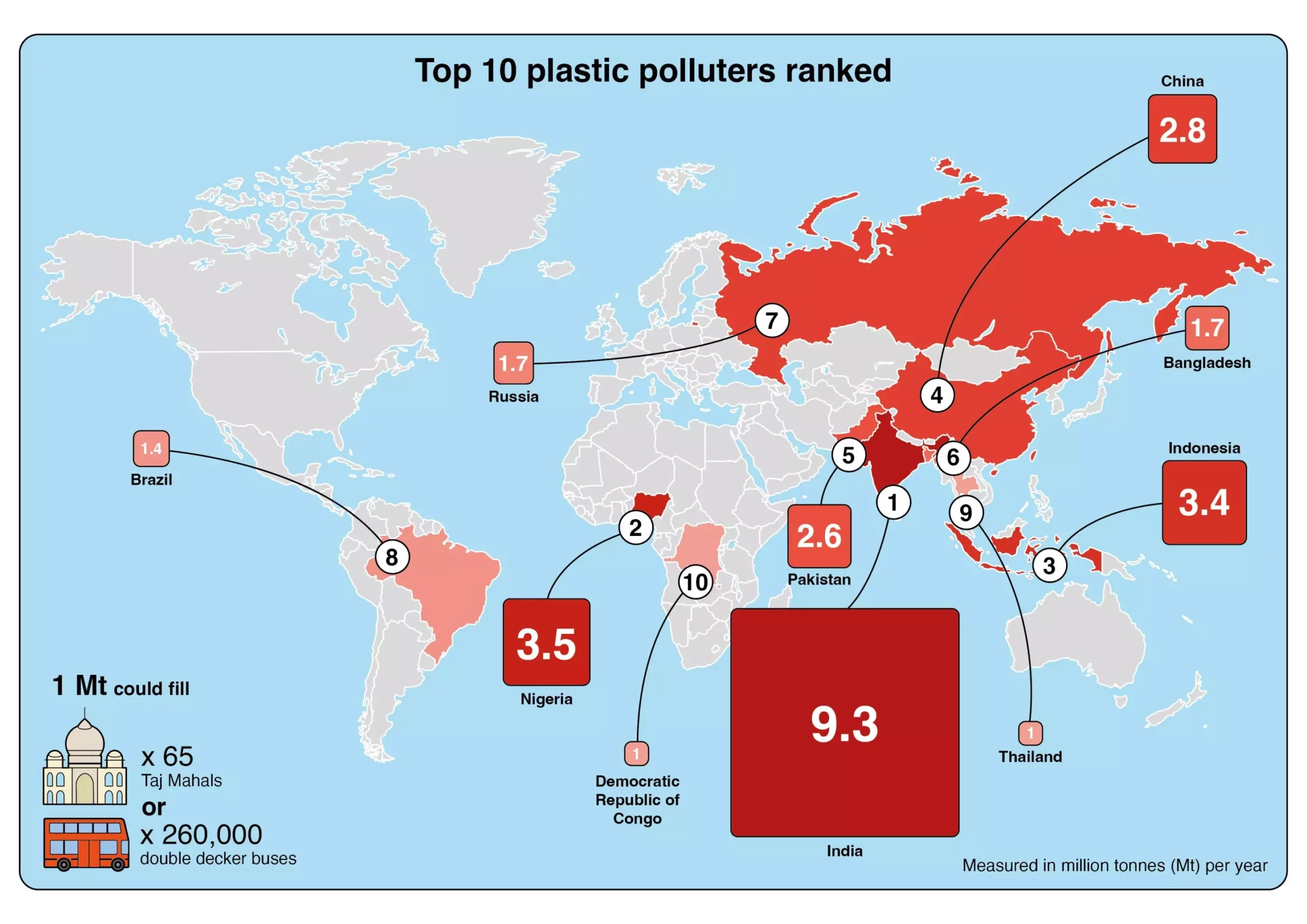The environmental predicament posed by plastic pollution has surged to the forefront of global discussions, as a landmark study from the University of Leeds uncovers staggering statistics detailing the extent of this crisis. Researchers harnessed the power of artificial intelligence to evaluate waste management practices across over 50,000 municipalities worldwide. This innovative approach yielded alarming insights into the sheer quantity of plastic that entered the environment in 2020, prompting a re-evaluation of our understanding of waste disposal and environmental safety.
The findings of the University of Leeds study are both compelling and disconcerting. It is estimated that in 2020 alone, approximately 52 million metric tons of plastic products infiltrated ecosystems globally. To visualize this magnitude, if one arranged these plastics in a line, it would encircle the Earth more than 1,500 times. This staggering volume of plastic is not just a number; it symbolizes a systemic failure in waste collection and management that impacts millions. Alarmingly, more than two-thirds of global plastic pollution stems from uncollected waste, with about 1.2 billion individuals—equivalent to 15% of the world’s population—living in areas devoid of adequate waste collection services.
Burning waste, particularly plastic, has often faded into the background of environmental discourse. However, the research highlights that an estimated 30 million metric tons, representing 57% of all plastic pollution, was incinerated without proper safeguards in 2020. This uncontrolled combustion poses significant health risks, including neurodevelopmental and reproductive issues, which predominantly affect marginalized communities that lack the infrastructure to manage waste properly.
Interestingly, while prior studies frequently pointed to China as the leading contributor to plastic waste, the new findings reveal India as the most significant offender, followed by Nigeria and Indonesia. This shift in perspective underscores the urgent need for localized strategies to combat plastic pollution, particularly in developing countries where waste management is often inadequate. The stark contrast between emissions from the Global North and South becomes apparent; while higher income nations exhibit relatively low direct pollution levels due to robust waste services, countries in Sub-Saharan Africa are witnessing a rise in per-capita pollution rates. These regions, although exhibiting lower overall plastic waste generation, are grappling with systemic inefficiencies in waste management, thereby amplifying their environmental impacts.
The ramifications of plastic pollution transcend mere environmental degradation and threaten public health, particularly within impoverished communities. Dr. Josh Cottom, lead researcher at the University of Leeds, asserts that individuals without access to waste management systems resort to self-managing their waste, often resulting in dangerous disposal methods like open burning or dumping in rivers. For these vulnerable populations, the health ramifications of plastic pollution can be dire, as many are powerless to influence the conditions affecting their lives. Improving basic waste management services could substantially mitigate plastic pollution and improve health outcomes for billions.
In the grand scale of plastic production, over 400 million metric tons are manufactured each year. This rampant output is joined by an alarming tendency for many plastics to be single-use and hard to recycle, remaining in the environment for extended periods. This abundance poses significant risks, particularly when harmful chemical additives are involved, which can leach into ecosystems or release toxic substances when burned.
The University of Leeds study serves not only as a wake-up call but also as a foundational resource for policymakers. By establishing a baseline for global plastic pollution—analogous to carbon emissions inventories—this research can guide comprehensive waste management strategies. Researchers advocate for the creation of a legally binding global treaty focused on tackling plastic pollution sources. The implications of their findings necessitate immediate action to forge solutions that address both waste management inadequacies and promote a circular economy.
Dr. Costas Velis highlights the urgency of this issue, calling for an intensified focus on reducing both open burning and uncollected waste. Such measures are vital for safeguarding public health and protecting the environment. The consequences of ignoring plastic pollution will only accumulate, potentially leading to more severe impacts in the future.
In light of the findings from Leeds University, it is clear that addressing plastic pollution necessitates a multifaceted approach. By enhancing waste management infrastructure in vulnerable communities and prioritizing the reduction of plastic waste at its source, we can initiate significant progress in combating this crisis. The evidence is irrefutable; without immediate action, the perils of plastic pollution will continue to escalate, affecting both human health and environmental integrity on a global scale. The time for change is now, and the responsibility lies with all of us.

